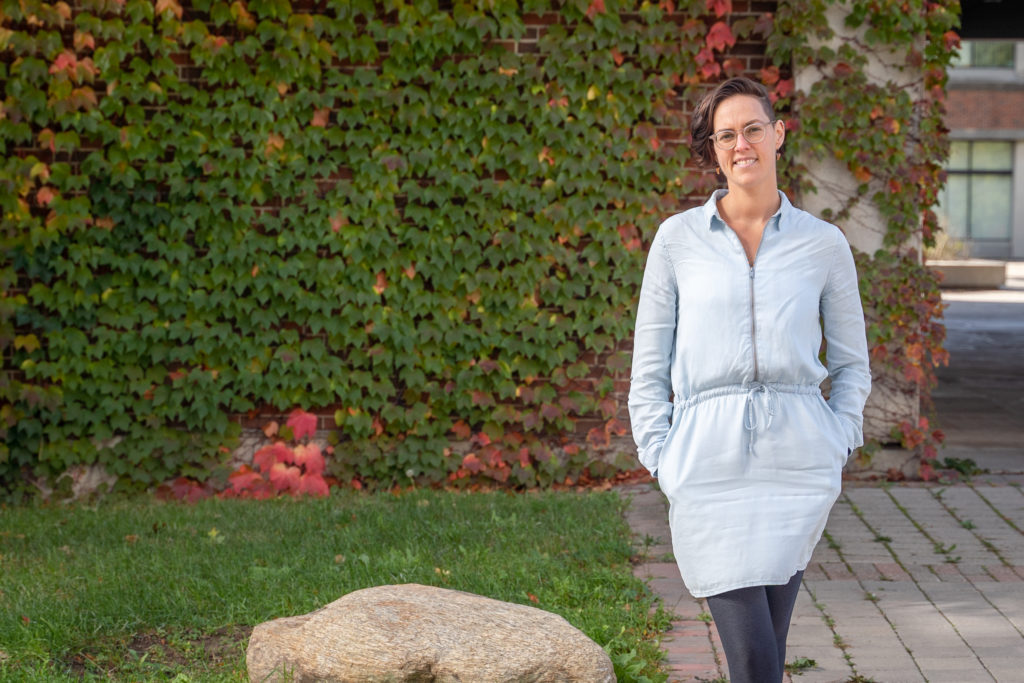
Pictured here: Sarah Rotz
York University’s researchers and educators are world leaders at better understanding personal and political relationship with land and food. That work has never been more important, and York’s Sarah Rotz didn’t let the COVID-19 pandemic get in the way of her important work.
Rotz is an assistant professor in the Faculty of Environmental and Urban Change (EUC) and teaches York’s Land and Food Politics course. To help students understand the issues from the people who work in agriculture on a daily basis, she turned to virtual technology in partnership with Black Creek Community Farm (BCCF), a stone’s throw away from York’s main campus. “We opened the course with a tour of the farm and talks by the staff,” says Rotz, “and the participatory approach brought the conceptual issues we’d be studying back down to Earth.”
In fact, Rotz integrated a number of guest lecturers into the fourth-year capstone course including EUC’s MIIJIM: Food as Relations Series, which presents Indigenous, Black and People of Colour food scholars, growers, artists and advocates who discuss the interconnections between art, earthwork, cultivation and harvesting experiences that decentre colonial frameworks, while thinking through labour and power relations related to food justice.
“Professor Rotz used all her connections to bring people to our course,” says Natalie Mandarino, a third-year student. “We’d listen to a presentation and then discuss it. It was really inspiring.”
In starting the fall course with a virtual tour led by BCCF personnel, Rotz enabled the students to experience the fall harvest season, giving them a tangible understanding of some of the key issues involved in land and food politics.
“We have a system of decision-making and planning that focuses on the needs of corporations over the needs of community members,” Rotz says. “Everyone should have access to space to grow food.”
During the virtual tour, students met with farmers and learned about sustainability, different ways of growing crops, soil health and what the term “organic food” means. Given that the farm works closely with the Jane Finch Community in Toronto, Rotz says the students began to see “the interconnected elements of oppression and marginalization around food and the impacts it can have on health, stress levels and relationships.”
“We look at all the ways that students can connect with the land and food where they live, given their different levels of access to green space,” Rotz says. “I think they felt that connection, based on what I hear from them. Some are planning to grow container gardens now, use space in their backyards or join community gardens. Others are just committed to going for more walks to appreciate nature.”
In general, Rotz notes, “Food is a cross-cutting theme that allows us to analyze social and political issues through various lenses. It allows us all to critically reflect on our own experiences in relation to food, including the early messages we receive and the cultural norms.”
